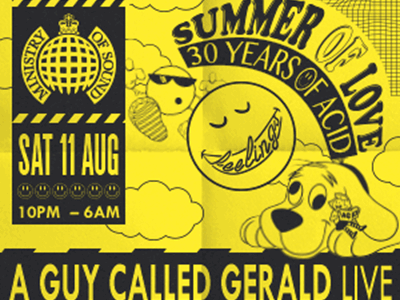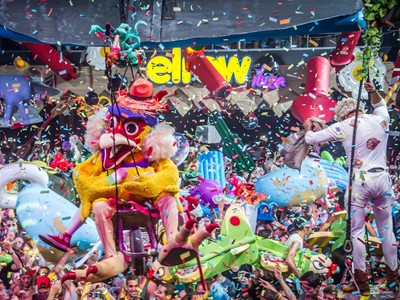The Mercury Music Prize is an award of prestige given to a group or artist whose music has gathered column inches in all the right places
Since its inception in 1992 the awards have made masters out of quiet sonic innovators. Talented British nobodies have reached the hallowed halls of musical fame due to a Mercury Prize, with the prize money enabling them to tour, record and promote, propelling them into a new stratosphere of artistry.
Roni Size won in 1997, arguably the only winner whose music was made, first and foremost, to be played by a DJ. “When we first got nominated we didn’t even know that much about the Mercury Music Prize. We were coming from a world which was so different from the big music industry of London."
Roni Size
The Bristolian and his band, Reprazent, turned up to the awards ceremony, overwhelmed by the bright lights and star treatment. They revelled in the free booze and - perhaps unexpectedly - they won, beating off not just their peers in The Chemical Brother and The Prodigy, but also the Spice Girls and Radiohead.
The Mercury Prize claims winners from a spectrum of genres. This year, it has recognised grime for the first time since Dizzee Rascal won over ten years ago, with Skepta and Kano- both men who are a few albums into their career- receiving nominations.
The award is at its best when given to an act that defy genre, and in 2009, The xx were just this. Their eponymously titled debut was impossible to pin down and to this day the biggest pop songs are still being made with an xx structure in mind. The group have maintained both club and festival headliner status, a winner whose impact on contemporary music has remained steadfast.
The xx with their Mercury Prize
Pat on the back Mercury prize. However, when it came to recognising producer Jamie’s efforts as a solo artist who’d established himself as one of the most fire emoji DJs and producers on this fair isle, the decision didn't go his way. His debut album (the one dance music nominee of 2015) was waylaid for poet and pianist, Benjamin Clemantine.
The closest 2016 has to a dance music winner is Anohni. Like Jamie xx she’s won the Mercury before with a different project; 2005’s I Am A Bird Now was a record put out as Antony and The Johnson’s that won the hearts of many for its laid bare honesty and simplistic beauty.
Second time around, Anohni’s Hopelessness has been a challenging and vital release, a protest album that deals with climate change, domestic abuse and terrorism in a condemning manner bolstered by its production.
She worked extensively with Hudson Mohawke and Oneohtrix Point Never to create the record, and the three often appear side by side when it’s performed. Its production is, after all, what makes helps make the record so powerful, yet it’s only when the producers have worked in collaboration with a performer that they’re recognised.
Anohni performing with Oneohtrix Point Never and Hudson Mohawke
Some might argue that dance music producers have no need for a Mercury prize. They’re not in the habit of building their career record on record, and as Damon Albarn succinctly put it “the award would be like carrying a dead albatross round your neck”. Certainly Dizzee Rascal has never made a better record than Boy In Da Corner; who’s to say that Tourist would if nominated?
The one man who would know thinks otherwise. Roni Size talks humbly about the gamble the judges must have taken when they chose a drum and bass winner; a risk they’ve not made since.
“If you put New Forms on today, it has lasted. It’s still a good record and a very unique sound, as well. At the time, it was very hard to understand, whereas now you have a massive drum n’ bass scene. It’s all over the radio. It’s massive all over the world. We look back on that now and where the scene is. New Forms opened up a lot of people’s eyes in different countries which never knew about the genre – alongside people like Goldie, Adam F, DJ Rap and 4hero.”
Is it a coincidence that the year New Forms won critical achievement, Fabric opened to the public, and the year the Mercury music prize has the merest trace of dance music on its list, it closes down? For its supposed recognition of music that innovates and influences, the Mercury Prize mirrors the institutionalised bias against club music that authorities in Britain have been making such a play for recently.
Nomination lists year on year will feature artists who have leaned on dance music producers to help curate their sound. It’s a good year when it’s recognised, though it’s a rare year when it’s awarded. Club music isn’t going anywhere - in fact it’s propping up the releases that actually make it onto the radio and into the charts. It’s about time that the Mercury Prize started respecting this - it is their job, after all.






